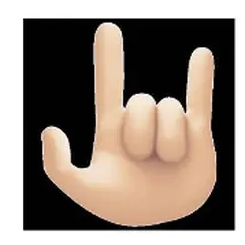- Trademarks & Designs
- Trademarks & Designs
- Strategy & managementUnlock the potential of your brand portfolio
- SearchingScreening and clearance search with smart pre-selection
- RegistrationTailored support to maximise your brand potential
- WatchingMonitor rights efficiently and cost-effectively worldwide
- Monitoring & prosecutionProtect and enforce rights on- and off-line
- Renewals & recordalsFlexible renewal and recordal services
- Strategy & management
- IP consultingBrand development, audits, licensing, M&A, valuation/monetisation, contract management and more
- IP consulting
- Patents
- Solutions
- Trademarks & Designs
- Trademarks & Designs
- Strategy & managementUnlock the potential of your brand portfolio
- SearchingScreening and clearance search with smart pre-selection
- RegistrationTailored support to maximise your brand potential
- WatchingMonitor rights efficiently and cost-effectively worldwide
- Monitoring & prosecutionProtect and enforce rights on- and off-line
- Renewals & recordalsFlexible renewal and recordal services
- Strategy & management
- IP consultingBrand development, audits, licensing, M&A, valuation/monetisation, contract management and more
- IP consulting
- Patents
- Solutions
- Contact
- About us
- About us
- About usProud to support iconic brands and innovative organisations worldwide
- Mission & visionDiscover how we are redefining IP management through dynamic, strategic and personalised services
- MilestonesExplore our history from our founding 135+ years ago to the present day
- Our offices18 offices and unique network of specialists delivers local expertise on a global scale
- Social responsibilityWe strive to positively impact the environment and the global community in which we work and live
- GovernanceInnovation, client focus and a passion for IP. Meet our management team
- About us
- Careers
- Log in
- About us
- About us
- About usProud to support iconic brands and innovative organisations worldwide
- Mission & visionDiscover how we are redefining IP management through dynamic, strategic and personalised services
- MilestonesExplore our history from our founding 135+ years ago to the present day
- Our offices18 offices and unique network of specialists delivers local expertise on a global scale
- Social responsibilityWe strive to positively impact the environment and the global community in which we work and live
- GovernanceInnovation, client focus and a passion for IP. Meet our management team
- About us
- Careers
- Log in

‘I Love You’ emoji trademark devoid of distinctive character, says EUIPO
The Second Board of Appeal of the European IP Office (EUIPO) recently issued a decision confirming the refusal to register an emoji trademark representing ‘I Love You’. The EUIPO had refused to register the pictogram on the basis that it was unable to fulfil the essential function of a trademark, namely to indicate the origin of the products and/or services of a company, as Laetitia Cardi explains.
 As background, the German company Käselow Holding GmbH had applied to protect the figurative sign (pictured right) as a European Union trademark (EUTM) in December 2021, designating financial and real estate services in class 36, as well as services related to construction and building in class 37.
As background, the German company Käselow Holding GmbH had applied to protect the figurative sign (pictured right) as a European Union trademark (EUTM) in December 2021, designating financial and real estate services in class 36, as well as services related to construction and building in class 37.
The sign represents an open hand with the thumb spaced apart from the other fingers, with the index and little fingers extended, and the middle and ring fingers folded. In American Sign Language (ASL), this sign indicates ILY, known internationally as ‘I Love You’.
Can pictograms, such as emoticons, smileys and emojis, be registered as trademarks?
In its decision of 18 November 2022, the EUIPO examiner rejected the EUTM application for all classes on the basis of Article 7, paragraph 1, point b) of the EU Trade Mark Regulation (EUTMR). This article provides that trademarks devoid of distinctive character are refused registration.
As discussed in the decision, this article of the EUTMR aims to ensure that the consumer or the end user can distinguish without likelihood of confusion the product or service carrying the trademark from those provided by another entity.
In this case, the examiner felt that the applied-for mark was not just a reproduction of a hand, but rather a gesture and, therefore, an emoji.
According to established case law, pictograms such as emoticons or smileys used to express positive feelings are perceived by consumers to be a purely decorative element or advertising message. They are not suitable, therefore, for indicating the origin of a specific company.
With regard to the services concerned, the consumer will only deduce a positive message from the sign signifying ‘I Love You’, which will not enable them to distinguish the origin of the designated services. This sign was not approved for trademark registration, therefore.
Emoji trademark reviewed by the EUIPO on appeal
On appeal, EUIPO’s Second Board of Appeal of EUIPO agreed with the examiner. In its decision issued on 1 June 2023, it confirmed the examiner's decision to reject the contested sign on the grounds of lack of distinctive character, for all the designated services, noting:
- The disputed sign, which represents the sign of an internationally known gesture meaning ‘I Love You’, is a pictogram, or more precisely an emoji, which serves as a parallel language by providing emotional cues in typed conversations.
- In the context of the services in question, the contested sign will be perceived as a simple representation of a positive gesture; an advertising message indicating that customers will be very satisfied with those services.
- As a simple positive message, the sign will not be perceived as an indication of the origin of the designated services, but rather as a general advertising message or a decorative element devoid of any distinctive character.
This ruling confirms, therefore, that a pictogram or emoji, reflecting an emotion either by facial expression or by a gesture, does not meet the minimum distinctive character required by the EUTMR to be registered as a trademark.
It should be noted that this decision can still be appealed before the EU General Court of the European Union before 5 August 2023.
For more information on protecting figurative signs as trademarks, speak to your Novagraaf attorney or contact us below.
Laetitia Cardi is a Trademark Attorney based in Novagraaf’s Paris office.